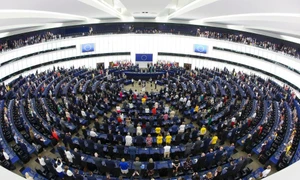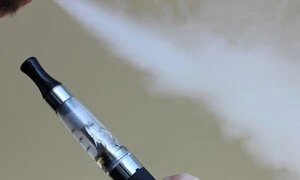On September 13, Members of European Parliament (MEPs) approved a new law to increase the use of sustainable fuels, such as advanced biofuels or hydrogen, in the aviation sector.
The RefuelEU aviation rules are part of the ‘Fit for 55 package’, the European Union’s (EU) plan to reduce greenhouse gas emissions by at least 55 per cent by 2030 compared to 1990 levels and to ensure it becomes climate neutral by 2050.
The regulations aim to encourage the aviation sector to use sustainable aviation fuels (SAF) in order to cut emissions.

Timeline to adopt green fuels
The MEPs secured a timeline on the provision of the jet fuel mix, obliging EU airports and fuel suppliers to ensure that, starting from 2025, at least 2 per cent of aviation fuels will be green, with this share increasing every five years: 6 per cent in 2030, 20 per cent in 2035, 34 per cent in 2040, 42 per cent in 2045 and 70 per cent in 2050.
In addition, a specific proportion of the fuel mix (1.2 per cent in 2030, 2 per cent in 2032, 5 per cent in 2035 and progressively reaching 35 per cent in 2050) must include synthetic fuels such as e-kerosene.
According to a statement released on the new rules, “the term ‘sustainable aviation fuels’ will include synthetic fuels, certain biofuels produced from agricultural or forestry residues, algae, bio-waste, used cooking oil or certain animal fats. Recycled jet fuels produced from waste gases and waste plastic are also considered green”.
Feed and food crop-based fuels and fuels sourced from palm and soy materials will not be classified as green. Renewable hydrogen is included as part of a sustainable fuel mix for its potential to aid the decarbonisation of air transport.
EU label for environmental performance
As of 2025, there will be an EU label for the environmental performance of flights. Airlines will be able to market their flights with a label indicating the expected carbon footprint per passenger and the expected CO2 efficiency per kilometre.
This will enable travellers to compare the environmental performance of flights operated by different carriers on the same route.
The parliament’s spokesperson José Ramón Bauzá Díaz (Renew, ES) said: “This is a tremendous step towards the decarbonisation of aviation. It is now time for EU governments to implement the new rules and support the industry to ensure the cost-effective deployment of SAF across Europe as well as meeting EU targets. There is no time to lose.
“In a complex and competitive world, I fully believe that ReFuelEU is a great opportunity to position the EU as a global leader in the production and use of SAF.ʺ
The new rules on SAF were adopted by 518 votes in favour, 97 votes against and eight abstentions.
Once the council has approved them, new rules will apply as of January 1, 2024 and some provisions as of January 1, 2025.
Air quality regulations in the spotlight
Additionally, MEP adopted their position on a revised law to improve air quality in the EU in order to achieve a clean and healthy environment for European citizens.
There were 363 MEPs who voted in favour, 226 against and 46 abstained on the vote, which sets a stricter 2035 limit and target values for several pollutants including particulate matter (PM2.5, PM10), NO2 (nitrogen dioxide), SO2 (sulphur dioxide) and O3 (ozone).
The new rules would ensure air quality in the EU is not harmful to human health, natural ecosystems and biodiversity and would align regulations with the most recent World Health Organization (WHO) Air Quality Guidelines.
The MEPs also stressed that the air quality standards proposed by the commission should be an intermediate objective to be reached as soon as possible, and by 2030 at the latest.
Gulf Business























